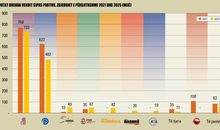
 Flash News
Flash News
The Supreme Court returns Arbër Veliaj's appeal for retrial
Call Center raided in Tirana/One of the organizers and 6 employees in handcuffs
Fight with crowbars and gunfire in Tirana, police official reaction
"We protect the vote", Berisha reveals the slogan of the May 16 protest
Accident at Tujani Stairs, two young people lose their lives
REL Analysis: What to Expect from Proposed Talks in Turkey on Russia's War Against Ukraine
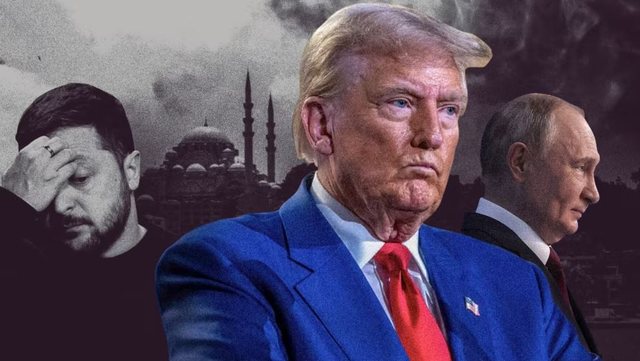
Suddenly, Ukraine and Russia are preparing for the first direct peace talks since the spring of 2022, when negotiations that began immediately after Moscow's full invasion of Ukraine broke down.
The road to the talks expected to take place in Turkey on May 15 has been short.
On May 7, US Vice President JD Vance said that direct negotiations between Russia and Ukraine are a priority.
On May 10, European leaders joined Ukrainian President Volodymyr Zelensky in calling for a thirty-day ceasefire to begin on May 12, warning Russia of additional sanctions if it did not comply.
In a statement, Russian President Vladimir Putin attempted to turn the situation around, calling for direct talks in Turkey on May 15 and saying a ceasefire could only be achieved through negotiations.
That passed the ball to Ukraine, and Zelensky hit back: He said he would be in Turkey on May 15 and challenged Putin to show up for a face-to-face meeting, their first in more than five years.
With the deadline looming, details are scarce. Here are some of the key questions: Who will participate, what can be achieved, who will be blamed if there is no result?
Who will participate?
Zelensky is the only leader who has confirmed that he will be in Turkey on May 15.
His announcement poses a challenge to Putin, who has often claimed that Zelensky is illegitimate because his five-year term would have ended about a year ago, after new presidential elections.
This provocative claim ignores the fact that Ukraine has been under martial law since the start of the full Russian occupation in February 2022, which prohibits holding elections.
The meeting with Zelensky could be seen as a recognition of his legitimacy, undermining one of the Kremlin's main false narratives about Ukraine: that the current leadership is the legacy of a Western-backed coup against the pro-Moscow government in 2014.
It would also underscore Putin's failure to achieve one of the main objectives of the 2022 invasion, the ouster of Zelensky and the installation of a pro-Russian government.
"If Putin shows up in Istanbul, that would already be a defeat for him," political analyst Alexander Friedman told Current Time.
"The very fact that he enters into negotiations with Zelensky would signal a loss for him, especially if he goes under pressure, at a summit he clearly did not plan to attend," Friedman said.
If he does not meet with Zelensky, it would open the door to accusations that he is afraid to do so.
Presidenti ukrainas, i cili e ka bërë këtë pretendim më parë, e rriti presionin më 13 maj, me Reuters që citoi një këshilltar anonim të Zelenskyt të thoshte se ai do të takohej vetëm me Putinin.
Shtesë në presionin ndaj Putinit është mundësia që edhe Trump të paraqitet në Turqi.
“Po mendoja të fluturoja atje. Nuk e di ku do të jem të enjten,” tha presidenti amerikan më 12 maj, përpara se të nisej për një vizitë katërditore në Lindjen e Mesme.
“Ka një mundësi, ndoshta, nëse mendoj se gjërat mund të ndodhin”, tha Trump.
Çfarë mund të arrihet?
Pavarësisht nëse Putin merr pjesë apo jo, analistët thonë se Rusia ka pak gjasa të bëjë lëshime apo të tërhiqet nga qëndrimet e saj të kahershme.
Putin e sugjeroi këtë kur thirri gazetarët rusë në Kremlin, ku kërkoi bisedime të drejtpërdrejta në Turqi më 15 maj; ndër të tjera, ai i paraqiti këto bisedime si një vazhdim i negociatave që u zhvilluan pjesërisht në Stamboll në vitin 2022, kur Rusia kërkonte, mes të tjerash, një premtim për neutralitet të përhershëm nga Kievi dhe kufizime të rrepta në forcat dhe kapacitetet ushtarake të Ukrainës.
“Rusia nuk do të pranojë një armëpushim 30 ditor” dhe “do të përpiqet të rikthejë formatin e vjetër të Stambollit për të negociuar kufizime të ashpra mbi sovranitetin e Ukrainës dhe bashkëpunimin e saj me Perëndimin. Ukraina do ta refuzojë këtë”, shkroi analisti rus i politikës së jashtme, Vladimir Frolov, në platformën X.
Që nga bisedimet e vitit 2022, Rusia ka shtuar kërkesat e saj për territorin ukrainas, duke përsëritur se për çdo marrëveshje paqeje që të jetësohet, Kievi dhe Perëndimi duhet të pranojnë kontrollin rus mbi katër rajone të Ukrainës që Putini i shpalli njëanshëm si pjesë të Rusisë në shtator 2022: Donjeck, Luhansk, Zaporizhia dhe Herson.
Thirrja e Putinit për negociata të drejtpërdrejta nënkupton se ai “sheh një mundësi për ta futur Ukrainën në një proces ‘Stambolli 2’, që i ngjan shumë bisedimeve të mars-prill 2022, për të ndjekur të njëjtat objektiva, tani përfshirë edhe territoret e aneksuara rishtazi”, shkroi Tatyana Stanovaya, një studiuese e lartë në Qendrën Carnegie për Rusinë dhe Euroazinë në Berlin.
“Realiteti është se as Moska dhe as Kievi nuk janë gati të pajtohen për një paqe të qëndrueshme, pasi pozicionet e tyre janë thelbësisht të papajtueshme”, shtoi ajo, duke theksuar se “iniciativa amerikane për të ndërmjetësuar një marrëveshje është e destinuar të dështojë, të paktën në këtë fazë”.
Kurt Volker, ish-ambasador amerikan në NATO dhe ish-përfaqësues special i Trumpit për negociatat në Ukrainë gjatë mandatit të tij të parë, gjithashtu sugjeroi se një përparim i shpejtë është i pamundur.
“Kjo do të jetë një proces i gjatë. Putini ende duket se beson se mund të arrijë kërkesat e tij maksimaliste”, tha Volker, tani studiues i lartë në Qendrën për Analiza të Politikave Evropiane në Uashington.
Kush do të fajësohet nëse bisedimet dështojnë?
Since Trump began his second term with efforts to broker an end to the biggest war in Europe since 1945, something he has said he could achieve in a day or two, Russia and Ukraine have tried to present themselves as constructive parties and blame the other as an obstacle to peace.
This was the backdrop to the intense activity in recent days, and their efforts will likely be redoubled if the talks in Turkey, if held, do not bring progress.
Early in his term, Trump seemed to see Ukraine primarily as the party obstructing peace, a perception that culminated in a visible clash in the Oval Office during Zelensky's visit to the White House on February 28.
The Trump administration has shown more frustration with Russia in recent weeks than ever before. On April 28, Trump said he wanted Putin to “stop shooting, sit down and sign a deal,” while Vance said on May 7 that Russia was “asking too much.”
On May 11, when he urged Ukraine to accept “immediately” Putin’s proposal for talks in Turkey, Trump added: “At least they will be able to determine if a deal is possible, and if not, European leaders and the US will know where everything stands, and can act accordingly!”
This suggests that if the talks fail and the US designates one party as particularly responsible, this could have serious consequences, for example, for future aid to Ukraine, or for sanctions against Russia, which appears to be interested in improving relations with the US.
However, Stanovaya says that barring an internal upheaval in Russia or a major breakthrough on the battlefield from Ukraine, which currently seems unlikely, external pressure on Moscow, such as tougher sanctions, will not change Putin's stance.
"His objective remains to turn Ukraine into a 'friendly' state, and as long as he remains in power, he will continue to either fight or force surrender," she writes./REL
Latest news


SPAK and BKH action in Shkodra, some escorted for electoral crimes
2025-05-14 14:05:26
This type of food can increase the risk of a deadly disease
2025-05-14 13:54:51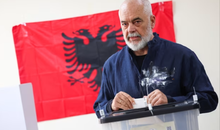
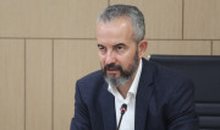
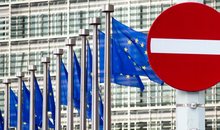
EU adopts new sanctions package against Russia
2025-05-14 13:30:51
Albanians' spending on private education reached 200 million euros in a decade
2025-05-14 13:20:22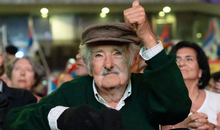
The poorest president in the world passes away
2025-05-14 13:10:33
Australia, death toll from melioidosis outbreak in Queensland rises to over 30
2025-05-14 13:01:07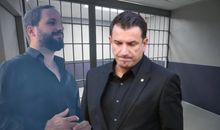
The Supreme Court returns Arbër Veliaj's appeal for retrial
2025-05-14 12:52:25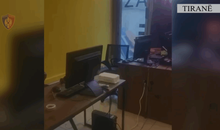
Call Center raided in Tirana/One of the organizers and 6 employees in handcuffs
2025-05-14 12:40:42
Kidnapping and threats in Astir, 29-year-old arrested
2025-05-14 12:34:57
Free and fair? Albania's elections reflect a worrying global trend
2025-05-14 12:28:34
Facebook's Zegjineja also a Member of Parliament
2025-05-14 12:16:40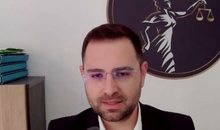
Diaspora vote, Nuri: Work done by patronage, strong shadows of suspicion
2025-05-14 12:07:33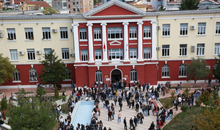

Fight with crowbars and gunfire in Tirana, police official reaction
2025-05-14 11:41:10
Fraud or manipulation?! Diaspora envelopes in Kukës are increasing by counting
2025-05-14 11:29:48

"We protect the vote", Berisha reveals the slogan of the May 16 protest
2025-05-14 11:11:02
Electoral crime/ SPAK publishes figures: 7 people arrested
2025-05-14 11:03:08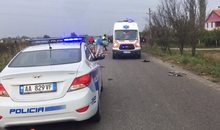
Accident at Tujani Stairs, two young people lose their lives
2025-05-14 10:51:01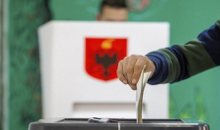
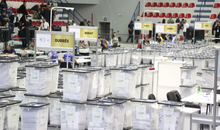
"SP gets 84 mandates", how did Open Data predict the results of May 11?
2025-05-14 10:28:28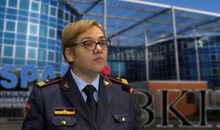

Tirana Court Sentences Dan Hutra, Serial Killer of Women, to Life in Prison
2025-05-14 10:10:55
List of MPs that Elbasan is bringing to the Assembly
2025-05-14 10:01:46
"Zjerm" leads Albania to the Eurovision 2025 final
2025-05-14 09:50:29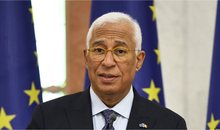

New parties open a window to Parliament for the first time
2025-05-14 09:31:45
Rama delivers a speech at Skanderbeg Square today
2025-05-14 09:31:34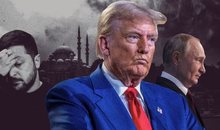
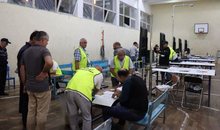
Shkëlqim Shehu wins mandate, most voted in Kukës from DP
2025-05-14 09:11:58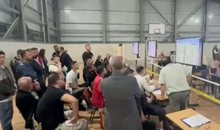
Votes for candidates, names from the open list entering the Assembly in Lezha
2025-05-14 09:03:23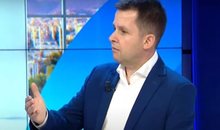
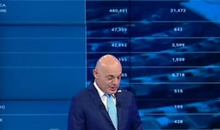
How was the vote stolen in London? Hasjani tells it live
2025-05-14 08:37:52
About 80 thousand envelopes from the diaspora are being counted, results so far
2025-05-14 08:30:37
Foreign exchange/ How much foreign currencies are bought and sold today
2025-05-14 08:13:53

4 cars collide in Tirana, after the accident the drivers fight with levers
2025-05-14 07:58:20
Weather forecast for today
2025-05-14 07:40:35
HOROSCOPE/ Here's what the stars have predicted for each sign
2025-05-14 07:20:57
Morning Post/ In 2 lines: What mattered yesterday in Albania
2025-05-14 07:06:32

SP towards full legislative control, what does this mean for democracy?
2025-05-13 22:36:52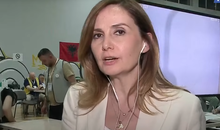
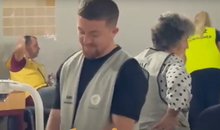
'Braçeee, Braçeee', the counter grabs the attention of CEAZ 5, laughter erupts
2025-05-13 21:55:09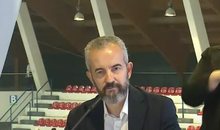
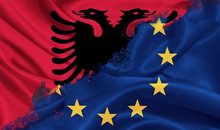
Tirana hosts European leaders on May 16, summit agenda revealed
2025-05-13 21:11:22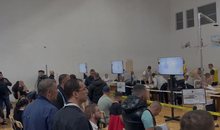
Counting closes in Vlora, PS gets 9 mandates, DP remains with 3
2025-05-13 20:59:14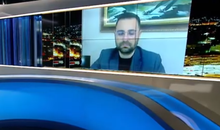
DP representative at the CEC: SP votes in the diaspora, filled by the same hand
2025-05-13 20:50:55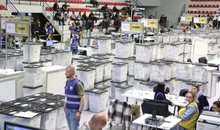
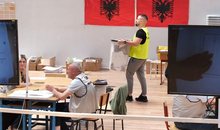
BIRN: European Union concerned about violation of electoral standards in Albania
2025-05-13 20:21:37
A house for a vote? Soft loans for the administration before the elections
2025-05-13 20:10:01
DP-ASHM secures two mandates in Kukës, Isuf Çelaj the most preferred voter
2025-05-13 20:01:22
Poll/ Were the May 11 elections fair?
2025-05-13 19:27:22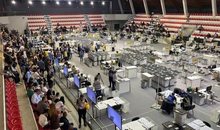
Elections 2025/ Counting of diaspora votes continues, results
2025-05-13 19:21:11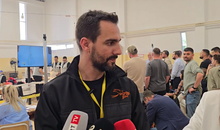
Lapaj: We are close to a mandate in Fier, we will take it from the SP
2025-05-13 19:17:33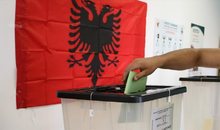

82 mandates, a reward for what?
2025-05-13 18:36:46
International cyber fraud network hit, seizures and checks in Tirana
2025-05-13 18:17:08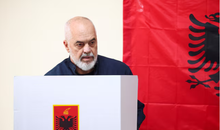
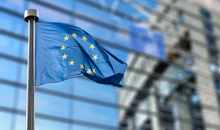

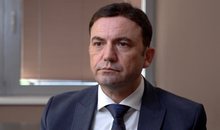
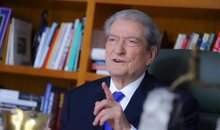
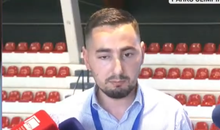

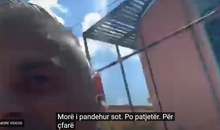

"Electronic Shkodra" takes to the Eurovision 2025 stage tonight
2025-05-13 16:02:42
Discover the 5 reasons to take folic acid even if you are not pregnant.
2025-05-13 15:45:50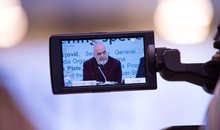
Lack of independent media undermined elections, observers say
2025-05-13 15:34:36
The first ballot boxes for candidates in Rrogozhina are being counted.
2025-05-13 15:31:42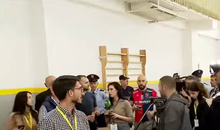



Albania has the most underdeveloped agro-industry in the region, Kosovo is first
2025-05-13 14:43:43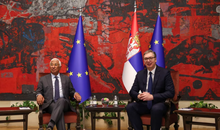
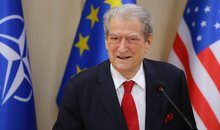
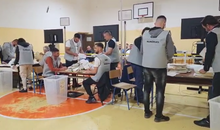
Preferential vote counting concludes in CEAZ 69, Skrapar
2025-05-13 14:23:43
The Director of the ARA appears before SPAK
2025-05-13 14:15:18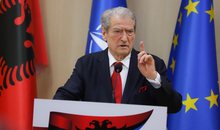

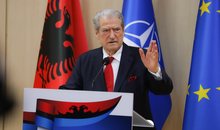
Berisha calls for protest on May 16: Elections were dictated by criminal gangs
2025-05-13 13:56:19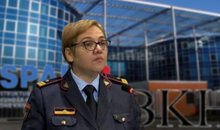
Aida Hajnaj is excluded from re-running for a second term as head of the BKH
2025-05-13 13:50:26
Accident near 9-year-old school in Korça, car hits student
2025-05-13 13:40:23

Lezha Court releases Elda Hoti's husband
2025-05-13 13:24:50
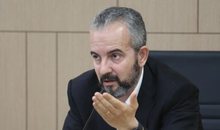
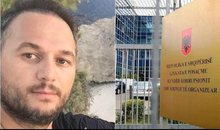
"Toyota Yaris" file/ SPAK demands 6 years in prison for lawyer Radovan Çela
2025-05-13 12:53:16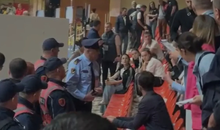
Conflict between observers at a CEAZ in Tirana, 7 escorted
2025-05-13 12:44:39
Counting closes in Kamëz, DP leads
2025-05-13 12:37:10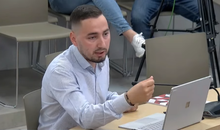

Shkodra, family members find 65-year-old woman hanged
2025-05-13 12:21:03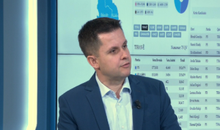
Alimehmeti: Albania cannot go to Europe with these elections
2025-05-13 12:12:27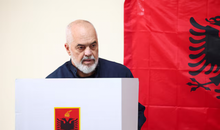
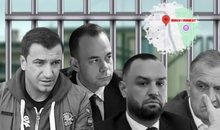
Durres Prison 'bastion' of the Socialist Party
2025-05-13 11:49:41
A house in Lezha is engulfed in flames
2025-05-13 11:36:28
